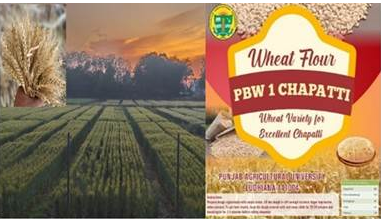Inside BENEO’s new pulse plant: pioneering sustainable protein from faba beans
Chapati is the staple diet in Northern Western India
Researchers at the Punjab Agricultural University (PAU) have developed a wheat variety, with excellent baking quality having soft and sweet chapatis. The wheat variety called ‘PBW1Chapati’ has been released at state level in Punjab for cultivation under timely sown irrigated conditions.
Chapati, a flat baked product prepared from wheat forms a cheap, primary source of protein and calories and is the staple diet in Northern Western India. The desired quality characteristics for chapati are greater pliability, puffability, soft texture and light creamish brown colour, slight chewiness with baked wheat aroma.
Inspite of the part of daily diet, the modern wheat cultivars do not possess chapati quality traits. Tall traditional wheat variety C 306 has been the golden standard for chapati quality. Later, PBW 175 variety was developed by PAU and had good chapati quality. However, both these have become susceptible to stripe and brown rusts. The challenge now is to combine high yield potential and disease resistance and retains the actual chapati quality.
Taking up the challenge, the wheat breeding team from Punjab Agricultural University have developed a new variety using marker assisted selection for a linked stripe rust and leaf rust gene Lr57/Yr40 in the PBW175 background. They have retained the chapati making parameters by testing the segregating materials using various biochemical tests during development of the variety.
The variety ‘PBW1Chapati’ aims to fill a void at commercial level owing to good chapati quality, sweet in taste and soft in texture. The colour of the chapati is comparably white and it remains soft even after hours of baking.

